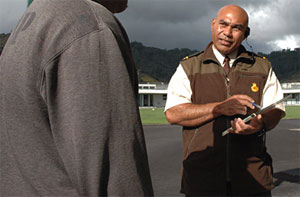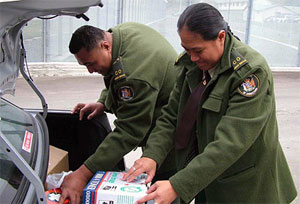Corrections Officer
Tasks & duties

Corrections officers may do some or all of the following:
-
help to implement and monitor the progress of prisoners' sentence plans
-
supervise prisoners' daily routine, which includes meals, work and recreation times
-
ensure discipline is in line with the prison's code of behaviour
-
patrol prison buildings and grounds
-
observe the behaviour of prisoners
-
record details of and monitor prison visitors
-
prepare reports relating to prisoners and any incidents that occur
-
monitor, assess and manage potentially harmful prisoners
-
search cells and prisoners as required
-
regularly conduct muster checks (head counts) to ensure all prisoners are accounted for
-
escort prisoners to court hearings, funerals or appointments with dentists or doctors
-
supervise prisoner work groups
Skills & knowledge

Corrections officers need to have:
-
knowledge of prison rules and routines
-
knowledge of control and restraint techniques
-
knowledge of first aid and safety procedures
-
good oral and written communication skills
-
computer skills
Entry requirements
To become a corrections officer you must pass a medical test and a physical fitness test. You must also take part in a personality profile, a panel interview and an assessment of your communication and analytical skills. You will also visit a prison to get a better understanding of the working environment.
You also need to have:
-
a driver's licence
-
a first aid certificate
-
no criminal convictions in the last 10 years
Training on the job
New corrections officers complete a one-week induction course at a prison, a six-week residential training course at the Corrections Staff College, and another week of induction.
Corrections officers can earn unit standards in the National Certificate in Offender Management while working. They may also do on-the-job training to learn new skills or refresh old skills. Training topics can include safety and security, addiction awareness and sentence management.
For more information, please refer to Career Services.
Document Actions
